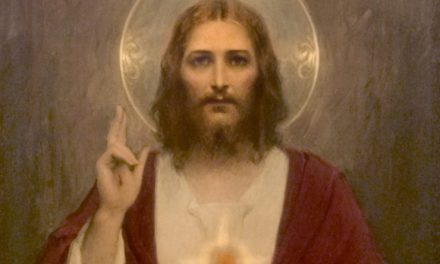Here we are once again, beginning my favorite season of the year: Advent. It’s the longest it can possibly be this year, too, so it’s a good thing I like it.
I’ve decided that Advent is the most counter-cultural season we celebrate. I’m not only referring to the fact that the world seems to celebrate Christmas as soon as it possibly can. Although this is true, I’m referring to the philosophy behind Advent. The world doesn’t like to wait. And it certainly doesn’t like to delay answering its own desires.
Lent is a little counter-cultural, but not as much as Advent. In Lent, we embrace penance and almsgiving, which our culture understands to a certain degree. Its approach to sacrifice tends to be more utilitarian—working towards a goal of losing weight, training for a marathon, or freeing oneself from an addiction—but there is still at least some understanding of the emphasis of the season.
Outwardly, it’s pretty clear that our world doesn’t understand Advent. But celebrating Christmas the day of Thanksgiving—or the day after Halloween—is just indicative of a greater problem in our society: the inability to embrace any privation, to delay gratification, to live with some need. Our culture is one of satiating wants, fulfilling needs, and gratifying desires. It seems these days we believe the greatest poverty is someone who is unable to have what they want, whether it’s material or philosophical. I should be able to have, do, say, or believe anything I want… simply because I want to have it, do it, say it, or believe it.
Advent is the exact opposite. It means putting off what I want (to celebrate, eat, drink, and be merry) on purpose. Is it because I hate Christmas music? I hate decorations? I hate Christmas cookies?
Of course not. It’s because I love those things.
In Advent, we embrace a time of longing and anticipation, which includes an element of penance, since we are accepting a delay of pleasure. Ultimately, the four weeks of Advent are waiting for the Messiah. It means entering into the time of our ancestors, as they waited for the first coming of Christ, and embracing our own waiting of His second coming (either at our death or at the end of the world). With both of these times of waiting, there is an understanding that this world does not satisfy, and we are waiting for the One who will.
We need to stir up this desire for Christ’s coming. We need to put ourselves in the shoes of our ancestors, who looked with longing for the fulfillment of the prophecies. We can become so comfortable, so complacent, or even so busy that we forget how much we need Christ. We forget how much we long for him. How do we stir up that desire? By entering into this season of delayed gratification, this time of accepted privation, these four weeks of waiting.
Advent is a time to recognize the hole in our hearts. It is a hole we accept, because we know it ultimately will not be filled in this lifetime. During Advent, we embrace it. C.S. Lewis, taking a page from St. Augustine, posited, “If I find in myself a desire which no experience in this world can satisfy, the most probable explanation is that I was made for another world.”
We can ignore that hole, and we can try to fill it with other things. Or we can recognize that this world will always be inadequate.
That is what these four weeks—and a long four weeks they’ll be this year—are all about. Yes, you can put up your Christmas tree today, you can stuff yourself with Christmas cookies tomorrow, and you can sing Christmas carols at the top of your lungs the day after that. Or you can wait. You can embrace the longing, the desire to do those things, knowing that your craving will be satisfied soon enough. And perhaps those decorations, those cookies, and those carols will be that much richer, thanks to the waiting.















